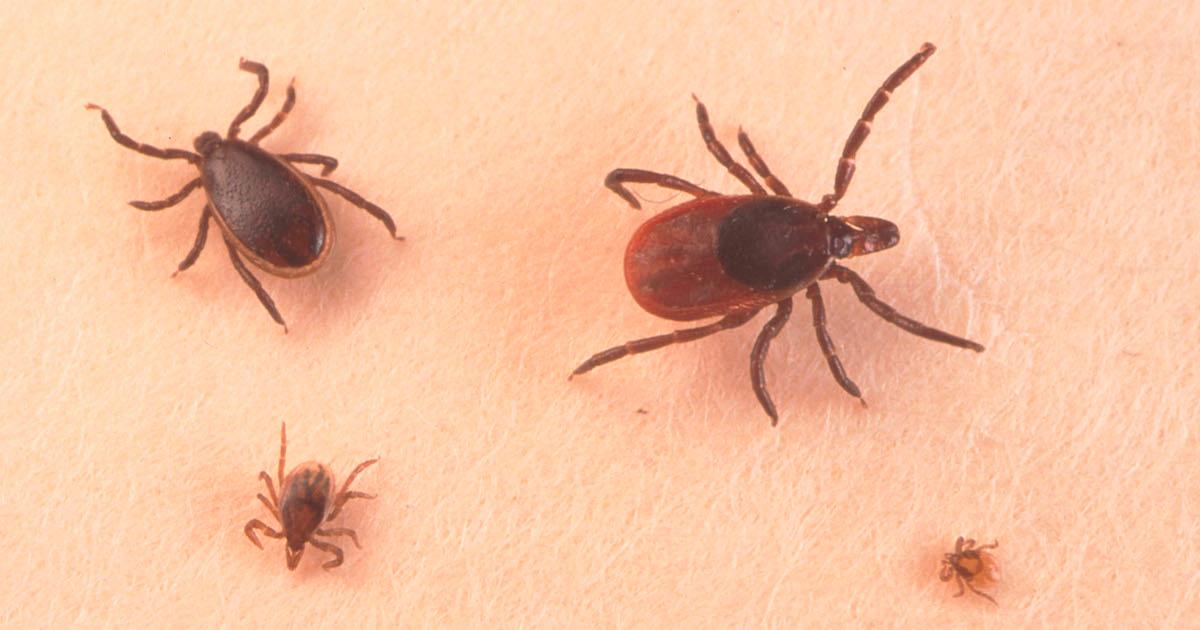Natural Ways to Repel Ticks This Season
Updated Jan. 26 2023, 11:50 a.m. ET

As the weather gets nicer, people tend to spend more time in the great outdoors. In rural and suburban areas, that can mean spending more time in tick-friendly habitats. Most people know how to spot a tick and keep them away, but with tick numbers on the rise and serious diseases like Lyme disease and Rocky Mountain spotted fever out there, finding effective tick repellents has become extremely important. Luckily, these all-natural tick repellents are great at keeping the little buggers at bay.
Natural tick repellents
The following natural tick repellents have been scientifically proven to be effective against the most common ticks. Nevertheless, if you're going out into tick country and you don't have access to these materials, there are other ways to keep yourself safe. Wear long pants, sneakers, and clothing that covers well. Also, after you've had a chance to settle down or undress, make sure to check yourself carefully for any ticks that might have managed to hitch a ride.

Essential oils
Ticks have extremely sensitive senses of smell, so powerful scents tend to drive them back rather than draw them in. Essential oils, like thyme, lemongrass, cedar, peppermint, and geraniol, are all fairly effective at keeping ticks off your clothing and even away from your property if placed strategically.
Essential oils are so effective, in fact, that according to Healthline, many existing tick repellents make use of them in their products. Unfortunately, those commercial repellents aren’t so effective against the deer tick and the lone star tick — the latter, of course, being the tick that can cause a red meat allergy in those who have been bitten.
Farmers’ Almanac has a pretty handy recipe for a DIY natural tick repellent that mixes a few of the most pungent, tick-repelling essential oils you can find. Simply mix 9 drops of citronella essential oil, 6 drops of tea tree essential oil, 6 drops of peppermint essential oils, and 1 tablespoon of either almond oil or jojoba oil, give it a shake, and apply onto bare skin. It should keep the ticks off of you for a good, long while.
Apple cider vinegar
Farmers’ Almanac also has a few things to say about the effectiveness of using apple cider vinegar as a tick repellent. Not only does apple cider vinegar stop the spread of infection based on the severity of the tick bite, but it can also be sprayed on clothing or outdoor furniture to keep ticks off those items as well.
To make this apple cider vinegar-based deterrent, simply combine 2 cups of water, 4 tablespoons of apple cider vinegar, and 2 tablespoons of organic neem oil in a spray bottle and go to town. Don’t worry too much about the vinegary smell, as your clothes can always be washed later. Meanwhile, the acidic scent will keep ticks away from you on the hiking trail.

Herbs and other plants
We assume that because ticks seem to love hanging around in high grass and undergrowth, they love all plants, but that could not be further from the truth. There are many herbs and other plants that ticks absolutely cannot stand, many of which also repel mosquitoes and spiders. According to Common Sense Home, those tick-repelling herbs include lemongrass, citronella, eucalyptus, rue, wormwood, lavender, and pennyroyal.
Recent studies have shown that a type of meadow grass called sweetgrass apparently contains chemicals similar to those found in DEET, a popular ingredient in insect repellents. Research has also shown that rose geranium is among the most effective plant-based tick repellents out there. Planting any of these around your home or rubbing their essences on your clothes and skin could create a sort of barrier against ticks.
Ticks are certainly a serious issue, but with proper identification and preparation, you should be able to keep yourselves, your loved ones, and your pets safe.
This article, originally published on May 25, has been updated.